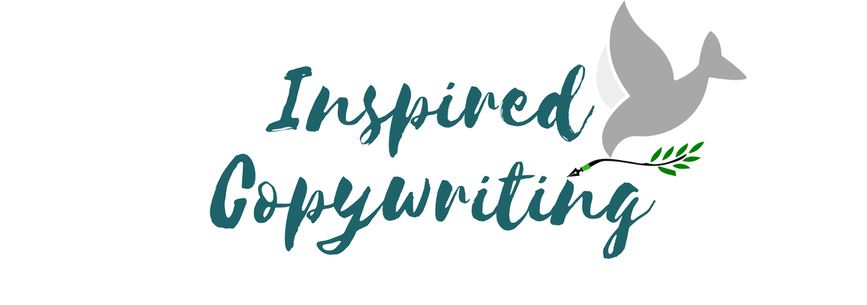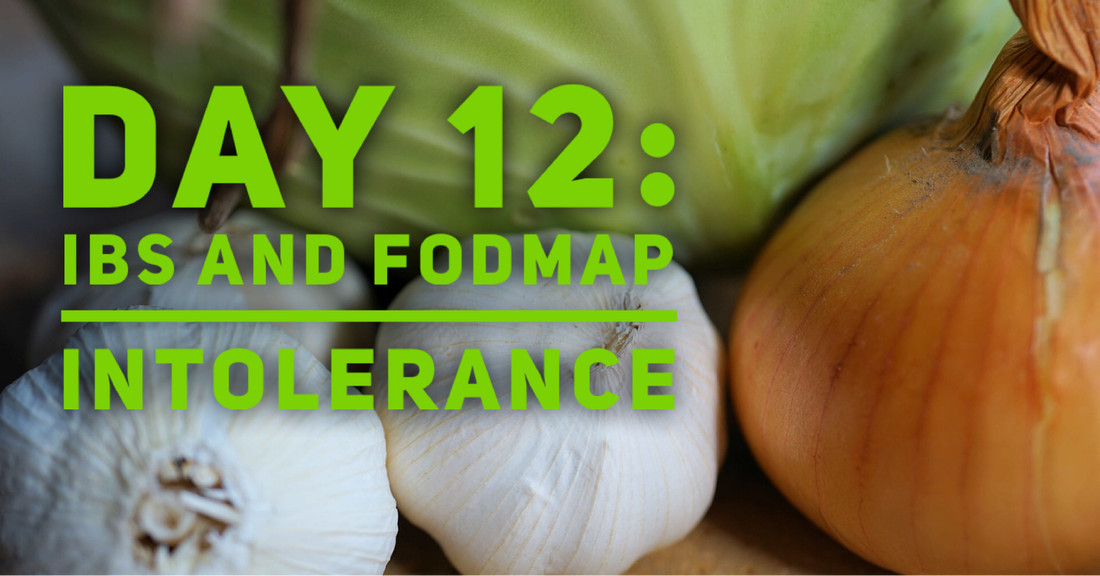Day 12: IBS and Intolerance to Fiber in Carbohydrates
Some people, especially those with irritable bowel syndrome (IBS) are intolerant to FODMAPs, although it’s still unclear how and why. They will try to avoid these foods that will make them have stomach aches, bloating, flatulence, diarrhea, constipation, or a combination of these symptoms. But according to some medical experts at Johns Hopkins, it’s a very restrictive diet and not advisable for the long term.
FODMAP stands for Fermentable Oligo-, Di-, Mono-saccharides, And Polyols. These are carbohydrates that the small intestine doesn’t absorb, and when these reach the large intestine, they react with bacteria and cause these symptoms.
Such foods include dairy-based milk, yogurt, ice cream, green onions, garlic, mushroom, cauliflower, apple, cabbage, beans, lentils, asparagus, and others.
Some people find that symptoms lessen if they cook the veggie instead of eating them raw, or if they eat only a small portion, or if they ferment it. Some also take probiotics to create a healthy balance of gut bacteria. Others observe that one trigger food doesn’t produce serious symptoms but eating many trigger foods in certain quantities at the same time results in gastrointestinal problems.
This subject about IBS and FODMAPs continues to evolve. Meanwhile, those with such problems are advised to work closely with doctors and dietitians who specialize in this area.
The low FODMAP diet may help individuals discover their degree of tolerance and intolerance to these foods. By withholding these trigger foods that cause cramping, flatulence, diarrhea, and/or constipation for two to six weeks and slowly taking them back into their system, the symptoms become more manageable. Some studies have shown association with gut microbiota and severity of symptoms. Healing the gut by reintroducing different beneficial bacterial strains relieve some of these symptoms. Working with a nutritionist and a GI doctor who specialize in gut health may prove helpful.
Some people who have non-celiac gluten sensitivity also respond to a low FODMAP diet making investigators think that perhaps these patients are not as sensitive to gluten as they think they are but rather to the fructans that tend to be present with the gluten in cereals. Results of studies have been conflicting so far and have led to confusion.
Many of those who suffer from IBS would also observe the symptoms to be associated with their emotional states, which makes some consider the role of the brain-gut axis.
We need more well-controlled randomized studies that will provide more consistent results.
Suffice to say, the microbiome has taken more center stage in recent years. Eating more plant-based food supports gut health and helps correct the dysbiosis or imbalance brought about by the Western diet.
A study relates how Asian American immigrants, after 15 years of living in the United States and adopting the Western eating habits develop metabolic diseases due to changes in their microbiome.
This article reveals some interesting insights about the gut microbiome and its profound implications for diet and disease. Click on the link for a more in-depth reading on gut microbiome.
https://www.ncbi.nlm.nih.gov/pmc/articles/PMC6682904/
Studies have shown that consuming more fiber, fruits, and vegetables is associated with biodiversity of good bacteria that promotes butyrate production and subsequently prevents obesity, hyperinsulinemia, hypertriglyceridemia, and fatty liver disease.
Before you put that food in your mouth, think first whether it will support the good bacteria or bad bacteria in your gut. When you consume less than the recommended amount of vegetables and whole grains, you’re depriving your good bacteria of the nutrients they need. Eventually, they will die and the bad ones will flourish and cause dysbiosis. The consequences may include a leaky gut and all sorts of inflammation that affect not only your gut but the other parts of your body like your brain, joints, liver, kidney, etc.
How is your gut health?
Do you have any food intolerance?
What steps have you taken to address it?
What helped and what did not?
Feel free to share your gut journey in the Facebook Culinary Medicine group with #myguthealth.
For more readings, see resources below:
https://www.monash.edu/.../why.../success-stories/fodmap
https://culinarymedicine.org/.../FODMAPS%20handout.pdf
https://www.ncbi.nlm.nih.gov/pmc/articles/PMC7019579/
FODMAP stands for Fermentable Oligo-, Di-, Mono-saccharides, And Polyols. These are carbohydrates that the small intestine doesn’t absorb, and when these reach the large intestine, they react with bacteria and cause these symptoms.
Such foods include dairy-based milk, yogurt, ice cream, green onions, garlic, mushroom, cauliflower, apple, cabbage, beans, lentils, asparagus, and others.
Some people find that symptoms lessen if they cook the veggie instead of eating them raw, or if they eat only a small portion, or if they ferment it. Some also take probiotics to create a healthy balance of gut bacteria. Others observe that one trigger food doesn’t produce serious symptoms but eating many trigger foods in certain quantities at the same time results in gastrointestinal problems.
This subject about IBS and FODMAPs continues to evolve. Meanwhile, those with such problems are advised to work closely with doctors and dietitians who specialize in this area.
The low FODMAP diet may help individuals discover their degree of tolerance and intolerance to these foods. By withholding these trigger foods that cause cramping, flatulence, diarrhea, and/or constipation for two to six weeks and slowly taking them back into their system, the symptoms become more manageable. Some studies have shown association with gut microbiota and severity of symptoms. Healing the gut by reintroducing different beneficial bacterial strains relieve some of these symptoms. Working with a nutritionist and a GI doctor who specialize in gut health may prove helpful.
Some people who have non-celiac gluten sensitivity also respond to a low FODMAP diet making investigators think that perhaps these patients are not as sensitive to gluten as they think they are but rather to the fructans that tend to be present with the gluten in cereals. Results of studies have been conflicting so far and have led to confusion.
Many of those who suffer from IBS would also observe the symptoms to be associated with their emotional states, which makes some consider the role of the brain-gut axis.
We need more well-controlled randomized studies that will provide more consistent results.
Suffice to say, the microbiome has taken more center stage in recent years. Eating more plant-based food supports gut health and helps correct the dysbiosis or imbalance brought about by the Western diet.
A study relates how Asian American immigrants, after 15 years of living in the United States and adopting the Western eating habits develop metabolic diseases due to changes in their microbiome.
This article reveals some interesting insights about the gut microbiome and its profound implications for diet and disease. Click on the link for a more in-depth reading on gut microbiome.
https://www.ncbi.nlm.nih.gov/pmc/articles/PMC6682904/
Studies have shown that consuming more fiber, fruits, and vegetables is associated with biodiversity of good bacteria that promotes butyrate production and subsequently prevents obesity, hyperinsulinemia, hypertriglyceridemia, and fatty liver disease.
Before you put that food in your mouth, think first whether it will support the good bacteria or bad bacteria in your gut. When you consume less than the recommended amount of vegetables and whole grains, you’re depriving your good bacteria of the nutrients they need. Eventually, they will die and the bad ones will flourish and cause dysbiosis. The consequences may include a leaky gut and all sorts of inflammation that affect not only your gut but the other parts of your body like your brain, joints, liver, kidney, etc.
How is your gut health?
Do you have any food intolerance?
What steps have you taken to address it?
What helped and what did not?
Feel free to share your gut journey in the Facebook Culinary Medicine group with #myguthealth.
For more readings, see resources below:
https://www.monash.edu/.../why.../success-stories/fodmap
https://culinarymedicine.org/.../FODMAPS%20handout.pdf
https://www.ncbi.nlm.nih.gov/pmc/articles/PMC7019579/

